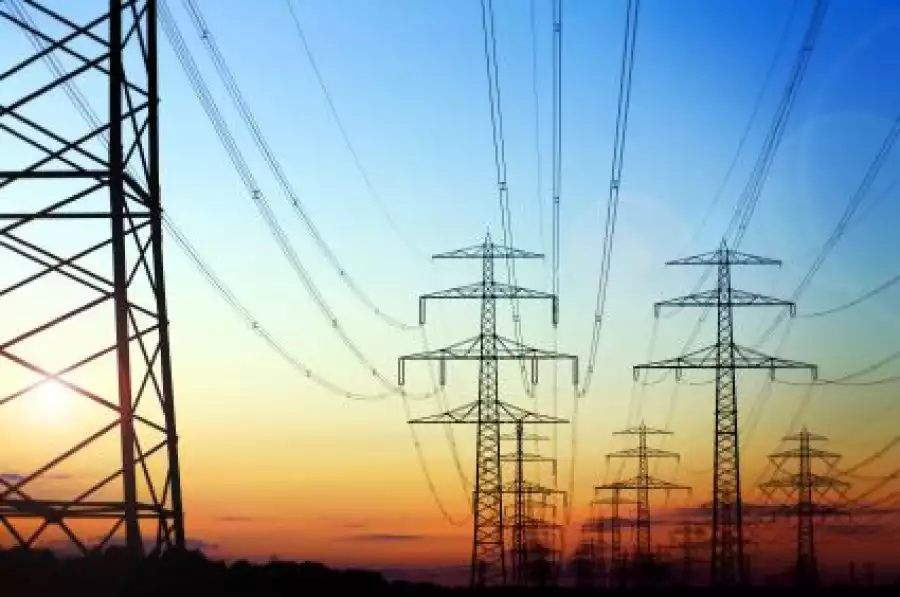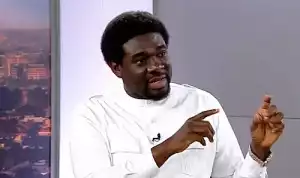Nigeria Missing From Top Ten African Countries With Electricity Access

Nigeria Missing From Top Ten African Countries With Electricity Access
Why Nigeria Export Power To Neighboring Countries-Presidency
Tunisia, Egypt, Algeria, Morocco Record 100 Percent Access To Electricity
Nigeria, renowned for its erratic power supply is missing from the list of top ten African countries with the best electricity access.
According to report by Business Insider, four northern African countries Egypt, Algeria, Morocco, and Tunisia all have 100 percent access to electricity to hold on to the top four positions.
They are closely followed by Gabon with 91% energy access; South Africa: 85%; Ghana, 84%; Botswana, 70%, Kenya, 70% and Senegal with 70% energy access makes the top ten.
Nigeria, came in at 15th position with 55 percent energy access below the likes of Libya, 69%; Ivory Coast, 69%; Equatorial Guinea, 67% and Cameroon at 63% energy access.
The list is courtesy of Tracking SDG7: The Energy Progress Report, a global dashboard dedicated to registering progress on energy access. The dashboard is a collaborative initiative of the International Energy Agency (IEA), the United Nations Statistics Division (UNSD), the World Bank and other partners.
However, the dashboard was last updated in 2019 which indicates that the statistics might have changed.
Electricity access simply entails the percentage of people, within a given location or country, who have stable access to electricity.
According to Business Insider, the African continent currently has the worst electricity access in the world. The continent's electricity challenge is mainly due to decades-long failure by African leaders to adequately invest in their respective countries' electricity sectors so as to build much needed capacity.
In order to considerably improve on Africa's electricity access problem, about $350 billion needs to be invested between now and 2030, according to a recent report by Wood Mackenzie Ltd. The amount would specifically be invested towards improving capacity for electricity generation and distribution.
Reason Why Nigeria Export Electricity Unveiled
One area that has remain confusing to many Nigerians is why the country keep exporting power to neighboring countries like Benin Republic, Niger Republic, Togo and others amid high debt rate while Nigerians are yet to enjoy stable and meaningful supply of electricity.
Expectedly, this development has attracted criticism, especially as these countries don’t usually pay promptly for the supply. Consequently, stakeholders and many Nigerians are wondering why the government has continued to engage in this unfruitful venture, when the country’s power sector is facing serious financial crisis.
It would be recalled that the Nigerian Electricity Regulatory Commission (NERC) recently disclosed that the Republic of Benin, Niger Republic and Togo made no payment for the electricity supplied to them from Nigeria in the second quarter of 2021.
In its just released Second Quarter Report 2021, the NERC stated that the power firms of the three nations and some other special customers were issued a total bill of N770m by the Nigerian Bulk Electricity Trading company and the Market Operator of the Transmission Company of Nigeria.
It, however, noted that nothing was paid by the neighbouring countries and other special customers for the power supplied to them from Nigeria during the period.
The neighbouring countries’ power firms include Societe Nigerienne d’electricite – NIGELEC, in Niger Republic; Societe Beninoise d’Energie Electrique – SBEE, in Benin Republic; and Compagnie Energie Electrique du Togo– CEET, in Togo Republic.
The commission said, “During the quarter under review, NBET and MO issued a total of N0.77bn in respect of energy sold by NBET and services rendered by MO to the special (Ajaokuta Steel Co. Ltd and other bilateral customers) and international customers (Societe Nigerienne d’electricite – NIGELEC, Societe Beninoise d’Energie Electrique – SBEE and Compagnie Energie Electrique du Togo– CEET).
“No payment was made by these customers during the quarter under review. It is hoped that as the economy of these customers improves post-COVID-19 lockdown so that they will resume the settlement of their bills in full.”
On the performance of distribution companies in Nigeria with respect to the payment of electricity sold to them by the NBET, the power sector regulator stated that the firms did not pay up all their bills.
“During the second quarter of 2021, a total invoice of N259.7bn was issued to the eleven Discos for energy received from the Nigerian Bulk Electricity Trading Plc and for service charge by MO, out of which a sum of N130.11bn was settled, representing remittance performance of 50.11 per cent.
“This represents a 1.78 percentage point decrease from the final settlement rate recorded in the first quarter of 2021.”
The NERC stated that apart from Eko Disco, none of the other Discos met their expected minimum remittance thresholds to NBET in the quarter under review.
It stated that overall, the total Disco remittance to NBET was 76 per cent of expected total for the quarter, as the average aggregate remittance performances to MO and NBET decreased by 1.78 percentage points from 51.88 per cent in first quarter 2021 to 50.1 per cent in the second quarter.
“DisCos remittance performance level ranged from 10.51 per cent (Yola) to 63.69 per cent (Eko) for NBET and 28.76 per cent (Yola) to 99.88 per cent (Eko) for MO,” the NERC stated.
It added, “Ikeja recorded zero remittance to MO in the months of May and June 2021 as they wait to resolve Service Level Agreement dispute.”
On commercial performance, the report stated that the total billing to and collection from electricity consumers by all the 11 Discos stood at N268.97bn and N185.29bn respectively during the quarter under review, implying a collection efficiency of 68.89 per cent.
It said the level of collection efficiency indicated that as much as N3.11 out of every N10 worth of energy sold during the second quarter of 2021 remained uncollected from consumers.
“Thus, only a marginal improvement in the collection efficiency is noticeable over the 68.55 per cent recorded in the first quarter 2021,” the NERC stated.
Over the years, it has become obvious that the motive behind Nigeria’s supply of electricity to these countries is more of international agreement or diplomatic treaties than business consideration. It is noteworthy that the current sources of electricity in the country are mainly hydro and gas. The hydro power plants derive their sources from River Niger.
Considered the river of West Africa, River Niger is about 4,180km, with drainage basin of 2,117,700 km2. And aside the natural resources in it, River Niger also services the power and agricultural sectors. Starting from the Guinea Highlands in southeastern Guinea, River Niger runs in a crescent through Mali, Niger, on the border with Benin and then through Nigeria, discharging through a massive delta, (the Niger Delta or the Oil Rivers) into the Gulf of Guinea in the Atlantic Ocean. The Niger is the third-longest river in Africa, exceeded only by the Nile and the Congo River (also known as the Zaire River).
As reported by Wikipedia, the water in the Niger River basin is partially regulated through dams. In Mali, the Sélingué Dam on Sankarani River is mainly used for hydropower, though it also permits irrigation. Two diversion dams, one at Sotuba just downstream of Bamako, and one at Markala, downstream of Ségou, are used to irrigate about 54,000 hectares. In Nigeria, the Kainji Dam, Shiroro Dam, newly built Zungeru Dam and Jebba Dam are used to generate hydropower.
The de-mining of River Niger by Nigeria reportedly prevented other countries in West Africa from generating power through the river and ensuring the development in Nile River among Ethiopia, Sudan and Egypt. The power exported to Niger, Benin and Togo is, therefore, based on Multilateral Energy Sales Agreement with Nigerian government.
The development had led to an initiative midwifed by the world between Nigeria and some of the countries, which compelled Nigeria to supply power to some international customers, since they were unable to dam the River Niger, where they would have generated electricity. The countries are, however, expected to pay accurately for the energy supplied.
This much was confirmed by the Senior Special Assistant to the President on Media and Publicity, Mallam Garba Shehu.
“Power exported to Niger, Benin and Togo are based on Multilateral Energy Sales Agreement with the Government of Nigeria is on the basis that they would not dam the waters that feed our major power plants in Kainji, Shiroro and Jebba” he disclosed in a statement reacting to the amount owed by these countries to Nigeria.
Meanwhile, Edo State Attorney-General and Commissioner for Justice, Professor Yinka Omorogbe, who is also the President of Nigerian Association for Energy Economics (NAEE) questions the rationale behind this.
She stated that though Nigeria has to honour the international agreement on supply of electricity, priority export of electricity in a country that is deficient in power supply leaves much to desire. To her, the country needs to look for ways to dispatch the stranded electricity, and that there was need to use the excess power in serving the economy.
Omorogbe said: “We have a huge energy deficit. It makes no sense to put our energy together and now supply some countries around us, unless the stranded power is right at the border and it is not economical. We should have declared an energy emergency long ago, and we should be working to ensure that every of our generated electricity is utilitised for our good.”
In a 2021 interview with Business Insider Africa, the CEO of Zola Electric, Bill Lenihan, was asked if Africa's energy access problem can ever be solved. This is what he had to say:
"What I do know is that it can definitely be improved upon. I believe we can also solve the affordability problem with the right energy ecosystem. And the right energy ecosystem is not a centralized ecosystem. It’s not the grid kind of ecosystem. The grid has had its chance to solve this problem for a hundred years and it has not; will not. In my opinion, distributed, digital and renewable energy will solve that affordability problem."
A recent report by Wood Mackenzie Ltd said Sub-Saharan African countries would need to invest as much as $350 billion between now and 2030, to be able to considerably improve electricity generation/distribution in the region.
In the meantime, it may interest you to know that the electricity access problem in Africa is not completely hopeless. As a matter of fact, some countries (especially those in North Africa) are doing fairly well. Others in Sub Saharan Africa, such as South Africa and Gabon, have also shown prospects.








![Deaw Special Super Soft Power (2024) [Thai]](https://www.memesng.com/r/storage.waploaded.com/images/b675bcd2729ccacc87521af7756011eb.jpg?w=50&ulb=true&ssl=1)
![Free Money (2023) [Estonian]](https://www.memesng.com/r/storage.waploaded.com/images/078db976c9c922a1c9c18a9a032b6c2b.jpg?w=50&ulb=true&ssl=1)














![Ninja Kamui (2024) [Japanese] (TV series)](https://www.memesng.com/r/storage.waploaded.com/images/269fcbec2b9d7d5506a919f192f2e61d.jpg?w=50&ulb=true&ssl=1)
![The Escape of the Seven Resurrection (2024) [Korean] (TV series)](https://www.memesng.com/r/storage.waploaded.com/images/2a7d90cddc2687327a1fdc3bef1e6d2e.jpg?w=50&ulb=true&ssl=1)
![Beauty and Mr Romantic (2024) [Korean] (TV series)](https://www.memesng.com/r/storage.waploaded.com/images/ecd8a3a73377eece67c71f1551596799.jpg?w=50&ulb=true&ssl=1)
{{comment.anon_name ?? comment.full_name}}
{{timeAgo(comment.date_added)}}
{{comment.body}}
{{subComment.anon_name ?? subComment.full_name}}
{{timeAgo(subComment.date_added)}}
{{subComment.body}}